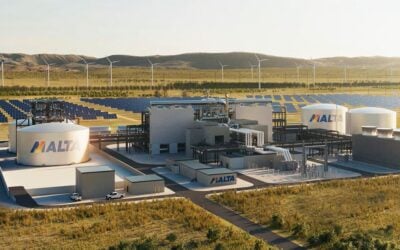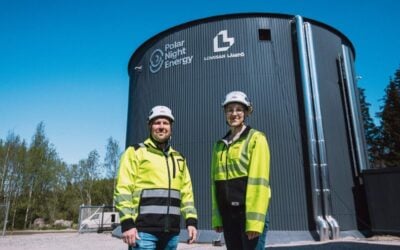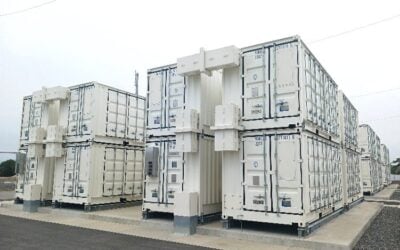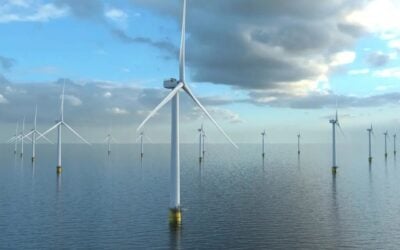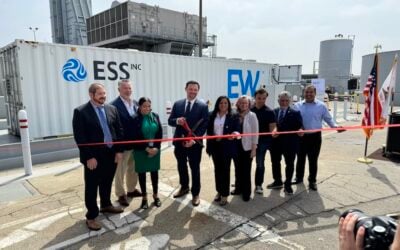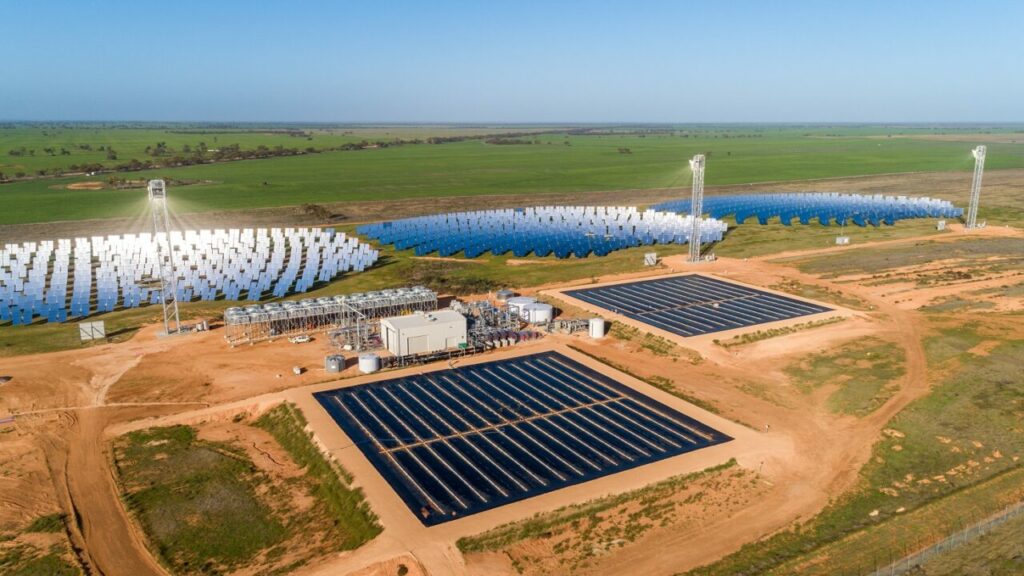
RayGen, a startup with a novel high-temperature thermal energy storage technology has marked the opening of a 50MWh plant combined with solar PV in Victoria, Australia.
Claimed to be a low-cost way of making renewable energy dispatchable for use when needed instead of when the sun shines or the wind blows, the company’s newly operational project pairs a 4MW ground mount solar PV array with 2.8MW/50MWh of energy storage.
Enjoy 12 months of exclusive analysis
- Regular insight and analysis of the industry’s biggest developments
- In-depth interviews with the industry’s leading figures
- Annual digital subscription to the PV Tech Power journal
- Discounts on Solar Media’s portfolio of events, in-person and virtual
That means the system has a 17-hour storage duration, marking a flagship development for the young company, which has already attracted investment from the likes of Equinor and Chevron’s venture capital (VC) arms.
It has also been supported with funding from the Australian Renewable Energy Agency (ARENA). The national agency helped get the project in the rural Victorian locality of Carwarp off the ground with funding for a feasibility study in 2020, which followed a successful period of operation for a 1MW pilot.
‘PV Ultra’ combines with ‘Thermal Hydro’ tech
RayGen has developed novel approaches to both the generation side and storage side of its dispatchable power plant, as reported by Energy-Storage.news as the ARENA funding was announced three-and-a-half years ago.
On the generation side, ‘PV Ultra’, is a combination of solar PV with concentrating solar power (CSP) in the same system. Basically, heliostats (mirrors) are angled to focus sunlight onto PV modules, which the company claims can dramatically increase efficiency.
On the storage side, RayGen has created ‘Thermal Hydro’, a technology which like pumped hydro energy storage (PHES) uses two reservoirs of water. PHES relies on two large bodies of water which discharge energy by dropping water from an upper body down to a lower body, driving the water through turbines.
RayGen’s tech meanwhile uses two bodies of water with differences in temperature instead of elevation. One pool of water is heated to a few degrees below boiling point, the other kept cooled to a temperature close to freezing.
The temperature difference is used to drive an Organic Rankine Cycle engine – the heated water is kept hot by run-off heat from the concentrating solar portion of the project, while the plant’s refrigeration system is kept running by power generated by the PV modules, or from off-peak grid electricity.
Heat exchanger equipment at the plant was supplied by fluid handling specialist company Alfa Laval.
ARENA announces AU$10 million grant for next project
The relationship between ARENA and RayGen has now extended to funding support for six projects in Australia.
ARENA last week announced AU$10 million (US$6.44 million) funding for the sixth and newest plant. Basically, the idea is to scale up the projects to larger and larger scales and the latest funding, taking ARENA’s support for RayGen to nearly AU$40 million to date, will help the company create further advanced iterations of the tech.
While the sizing or capacity of the new project was not disclosed, the funding support is intended to help RayGen perfect its PV Ultra-plus-thermal hydro enough to embark on a 115MW/1,200MWh storage facility with 200MW of solar generation.
That project would be built in Eyre Peninsula, South Australia. Its developer is Photon Energy, the European-Australian solar PV company which owns a 7.6% in RayGen and which has developed its other projects to date.
Photon Energy CEO Georg Hotar told Energy-Storage.news in 2020 that if the large-scale, long-duration energy storage (LDES) tech can be perfected at low cost, it would represent attainment of the “Holy Grail” of renewable energy integration as a form of baseload energy.
“As the RayGen technology tackles head-on the problem of intermittency of solar energy exporting electricity day and night and charging from solar and from the grid, we believe this technology has the potential to be deployed at a greater scale and we are progressing our efforts developing a similar 200MW solar-plus-storage plant in Yadnarie, South Australia,” Hotar said last week on the occasion of the CarWarp plant’s opening.
Along with Photon Energy, ARENA, Chevron Technology Ventures and Equinor Ventures, other investors in RayGen including Australia major energy generator-retailer (AGL) and oil services company Schlumberger (recently rebranded as SLB).

